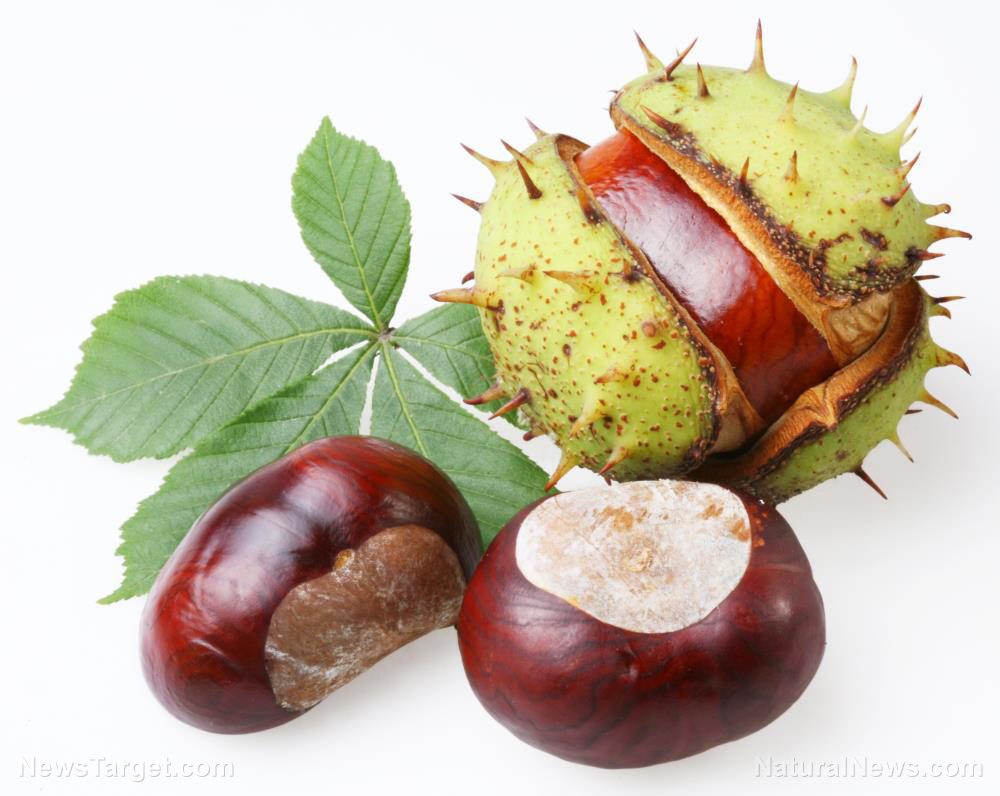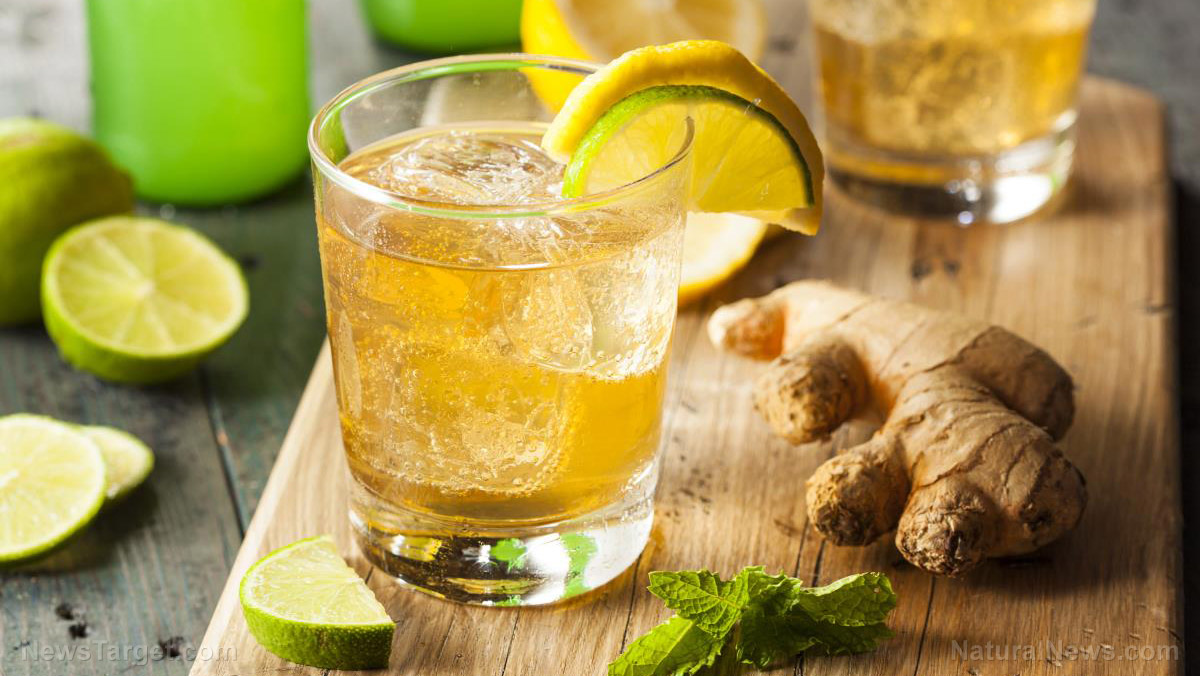
Advertisement
Horse chestnuts (Aesculus hippocastanum) are not related to the common chestnut (Castanea sativa) despite their similar names. However, you should not let the names fool you – as horse chestnuts are definitely packed with nutritional benefits!
Horse chestnut trees or conker trees are native to the Balkan region in Europe, but can also be found in North America. These grow up to more than 100 feet in height and produce large, white flowers. It bears spiky, green capsules called conkers as its fruits. Each conker contains one seed similar to that of a regular chestnut: This is why people mistook horse chestnuts for their regular counterparts.
Aside from their aesthetic qualities, horse chestnuts have been widely known for their potential benefits to the body. Many European cultures use A. hippocastanum as a traditional medicine, focusing on its leaves and tree bark. But the horse chestnut seed and its extract are the primary parts used in herbal medicine. Mature seeds are best for extraction as their chemical concentration changes as the conker ripens.
Horse chestnut seeds contain a wide variety of phytochemicals, which include the very potent aescin. This active ingredient of horse chestnut seeds encourages blood thinning, and a 2001 study found that and prevents water retention by triggering fluid release from the body.
Furthermore, a study done three years earlier found that aescin exhibited enzyme-inhibiting properties. It also reported that the compound can prevent the activation of white blood cells in patients with chronic venous insufficiency (CVI). People affected with this condition have high levels of white blood cells in their legs, due to blood accumulating in the vessels there.
Aside from these, here are some horse chestnut benefits you should definitely look into.
Horse chestnut improves blood circulation in the legs
The aescin content of horse chestnut seed extract has a blood-thinning effect. Because of this, studies have found that horse chestnut alleviates conditions stemming from poor blood flow. One study looked at the effect of horse chestnut seed on varicose veins.
According to this paper, taking A. hippocastanum seed extract capsules and topically applying cream with seed extract on varicose veins showed positive effects in addressing the condition. This is because horse chestnut improves circulation and blood flow, thereby reducing the “bulging” appearance of varicose veins.
Another study elaborated on the effects of horse chestnut on CVI. The 2009 paper found that short-term oral administration of horse chestnut seed extract successfully alleviated a number of CVI symptoms. It further explained that horse chestnut was as effective as common CVI remedies such as compression therapy.
Horse chestnut fights inflammation and oxidative stress
Aside from aescin, horse chestnut seeds also contain antioxidant compounds such as kaempferol and quercetin. These antioxidants are known for reduce inflammation and oxidative stress caused by free radicals. In 2010, a team of researchers studied the antioxidant properties of horse chestnuts.
The researchers looked at how A. hippocastanum seed extract affected the antioxidant defense systems of mice. They found that horse chestnut seed extract alleviated the effects of oxidative stress in mice groups that ate a standard and a high-fat diet. In addition, horse chestnut seed extract had a protective effect on the livers of both mice groups.
In addition, the anti-inflammatory properties of horse chestnut has made it a viable botanical treatment for hemorrhoids. A 2005 study found that horse chestnut was among numerous herbs with a significant effect on hemorrhoids, alongside chamomile (Matricaria recutita) and psyllium (Plantago ovata). The paper said such herbs can treat early stages of hemorrhoids if used internally and topically.
Horse chestnut alleviates inflammation-related male infertility
The anti-inflammatory and pro-circulatory properties of aescin in horse chestnut seed extract have been found to help improve male fertility. Some men suffer from inflammation or swelling near the testicles, which affects their fertility.
However, a 2010 study done in China revealed the potential of aescin in horse chestnut as a male fertility treatment. The researchers recruited more than 200 Chinese volunteers with fertility issues caused by enlarged scrotal veins. One hundred six volunteers from the larger pool received 60 milligrams of aescin per day through oral means for a span of two months.
The researchers found that those affected with mild and moderate scrotal vein enlargement saw high improvement rates. Sperm motility rates for the aescin group improved by 55.7 percent after receiving the compound.
Numerous studies have attested the effectivity of horse chestnut seed extract on various health conditions if used properly. However, you should consult with a medical professional before taking any herbal supplement.
If in case you are permitted to take horse chestnut seed extract, make sure to get the processed variant from a manufacturer. Avoid the raw form as it contains esculin, a toxic substance usually found in unripe or immature horse chestnuts. The bark and leaves of horse chestnut trees contain smaller quantities of this lethal compound. Fortunately, the toxic esculin is eliminated when the seed extract undergoes processing.
One side effect of consuming horse chestnut seed extract is your urine turning red, but this is harmless and will eventually disappear. More serious side effects to be wary of include a sudden drop in blood sugar levels, an upset stomach and a headache – the last two present in those consuming excessive amounts.
Allergic reactions to using horse chestnut have also been reported: Some have experienced itchiness, swelling, dizziness or breathing difficulties. Those applying horse chestnut bark or leaves to the skin may experience inflammation or irritation due to its active compounds.
Horse chestnut definitely has health benefits, but you should not horse around when taking this supplement!
Visit Herbs.news and discover the benefits of including horse chestnut seed extract in your daily diet.
Sources:
Advertisements







